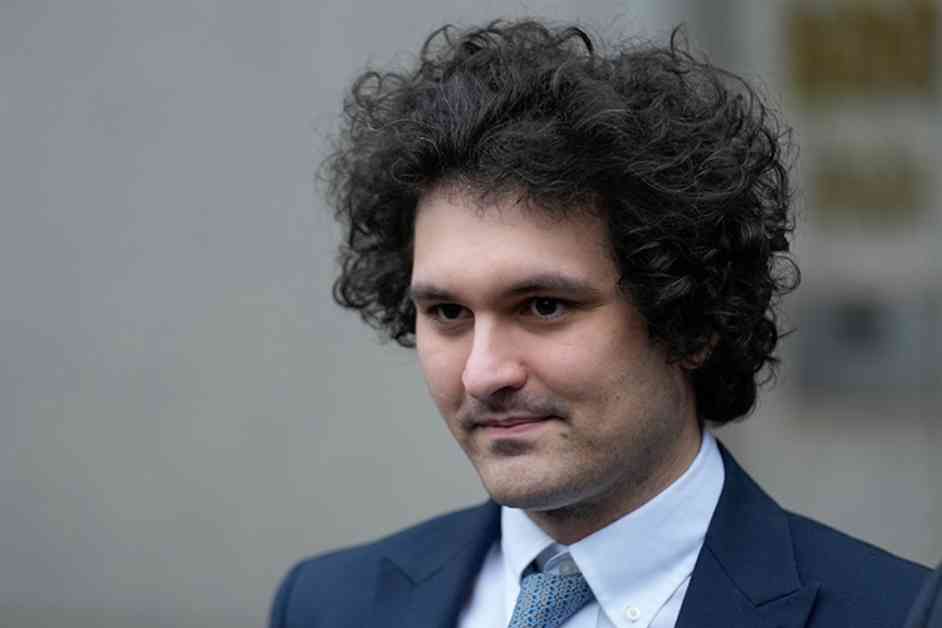Sullivan & Cromwell Report Finds No Conflicts in Representing Samuel Bankman-Fried
A recent report by a court-appointed bankruptcy examiner has revealed that Sullivan & Cromwell did not overlook any “red flags” indicating misconduct while representing Samuel Bankman-Fried, the founder of cryptocurrency exchange FTX. This comes as a reassurance that the law firm’s representation of Bankman-Fried in his purchase of shares in a mobile trading platform did not pose any conflicts of interest in its current role as bankruptcy counsel for FTX.
The examination conducted by Robert J. Cleary, a former Unabomber prosecutor who is now of counsel with Patterson Belknap Webb & Tyler, found that Sullivan & Cromwell’s representation of Bankman-Fried as regulatory counsel in acquiring $500 million worth of shares in the trading platform Robinhood was conducted without any indication of wrongdoing. Cleary’s report, entered into the docket on September 25, dismissed any concerns regarding the law firm’s involvement in the transaction.
Bankman-Fried’s conviction on charges of fraud and conspiracy in November 2023, following the collapse of FTX, shed light on the deceptive practices he employed within the company. Prosecutors revealed that Bankman-Fried had misrepresented FTX as a secure platform for cryptocurrency trading while siphoning off billions of dollars in customer assets to his private hedge fund. Despite FTX employees raising concerns to Sullivan & Cromwell about Bankman-Fried using customer funds for the Robinhood investment, the law firm maintained its innocence in the matter.
According to Cleary’s findings, Sullivan & Cromwell’s legal work for Bankman-Fried primarily involved regulatory filings related to the transaction. The initial report had already cleared the law firm of any prior knowledge of fraud committed within FTX before its bankruptcy. The report did, however, recommend a deeper investigation into Sullivan & Cromwell’s representation of Bankman-Fried in connection with the Robinhood shares purchase.
In response to the examiner’s report, a spokesperson for Sullivan & Cromwell expressed satisfaction in the findings, stating, “Our focus remains fully on achieving plan confirmation to facilitate the return of recovered assets to creditors.” This statement reflects the law firm’s commitment to resolving any outstanding issues related to its representation of Bankman-Fried and ensuring transparency in its legal practices.
The reassurance provided by the report underscores the importance of ethical conduct and due diligence in legal representation, especially in cases involving high-profile clients and complex financial transactions. The thorough examination conducted by Cleary serves as a reminder of the critical role that law firms play in upholding the law and protecting the interests of their clients and stakeholders.
Implications of the Report
The findings of the Sullivan & Cromwell report have significant implications for the legal industry and the standards of professional conduct expected from law firms. By clearing the law firm of any conflicts or negligence in its representation of Bankman-Fried, the report reinforces the importance of conducting thorough due diligence and adhering to ethical standards in legal practice.
The report serves as a testament to the rigorous oversight mechanisms in place within the legal profession to ensure accountability and transparency. As the legal landscape continues to evolve, the need for robust regulatory frameworks and independent examinations like the one conducted by Cleary becomes increasingly vital in upholding the integrity of the legal system.
Lessons Learned
The case of Sullivan & Cromwell’s representation of Samuel Bankman-Fried offers valuable lessons for law firms and legal practitioners. It underscores the necessity of maintaining a high level of ethical conduct and integrity in all client engagements, regardless of the client’s reputation or standing in the industry.
The importance of conducting thorough risk assessments and due diligence before taking on new clients or engagements cannot be understated. By proactively identifying and addressing potential conflicts of interest or red flags, law firms can mitigate the risk of being implicated in unethical or illegal activities by their clients.
Conclusion
In conclusion, the Sullivan & Cromwell report’s findings provide a valuable insight into the complexities and challenges faced by law firms in representing high-profile clients in sensitive legal matters. The report serves as a reminder of the critical role that ethics and professionalism play in the legal profession and highlights the need for continuous vigilance and adherence to regulatory standards. By upholding the highest standards of integrity and transparency, law firms can maintain their credibility and trustworthiness in the eyes of clients, regulators, and the public.















